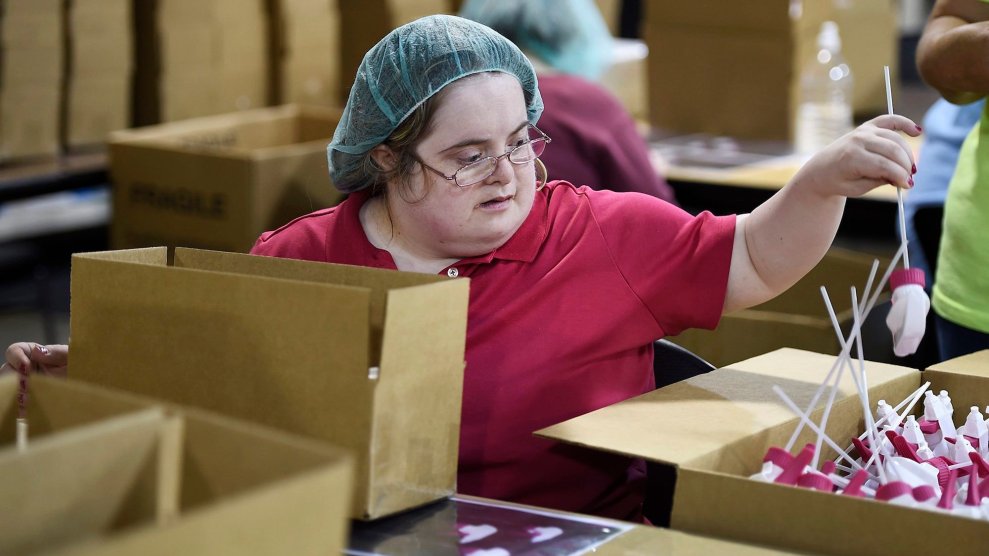
A worker in a sheltered workshop, which often pays people less than subminimum wageTammy Ljungblad/Zuma
On Thursday, Kansas Governor Laura Kelly signed legislation into law that would incentivize companies to pay disabled workers a living age. For decades, the Fair Labor Standards Act of 1938 has made it legal to pay disabled people less than minimum wage if they have a certificate. Only fourteen other states have passed laws to phase out this practice.
“I’m signing this bipartisan legislation to create more opportunities for people with disabilities, grow our workforce, and ensure every Kansan can work with dignity and respect,” Gov. Kelly said.
In states where subminimum wage is still legal, companies apply for 14(c) certificates which allow them to pay disabled people below both the federal and their state’s minimum wage. A US Government Accountability Office report found that most 14(c) workers earn less than $3.50 an hour.
The US Department of Labor is currently reviewing the 14(c) certificate program, but it is not clear if they will end the subminimum wage. A list of companies with 14c certificates can be found here.
In a recent Teen Vogue article, disabled journalist John Loeppky asked people to question what purpose 14(c) certificates serve—especially because the certificates are often given to workplaces that separate disabled people from other workers:
Does providing disabled people employment, even if it’s for a significantly reduced standard of wage, improve their quality of life? That’s an argument we can have, in theory, but when you are, like some companies on this list, paying hundreds of people below the minimum wage to supposedly empower them, it’s hard not to see that as less of an employment program and more of a warehousing of disabled people. That kind of supposed inclusion, which can, for many, be more like a sheltered workshop, is the very thing the independent-living movement has consistently been rallying against.
















